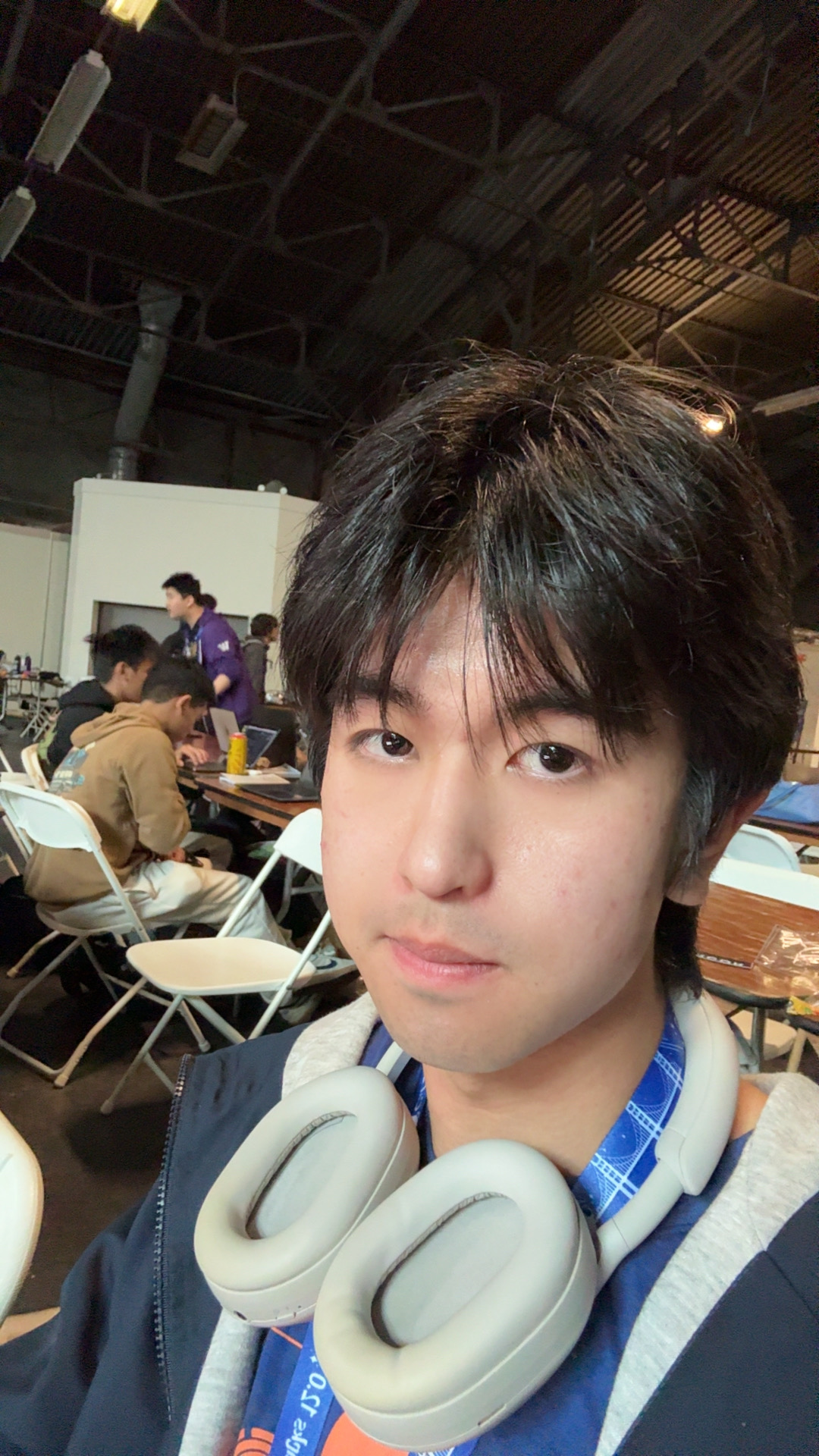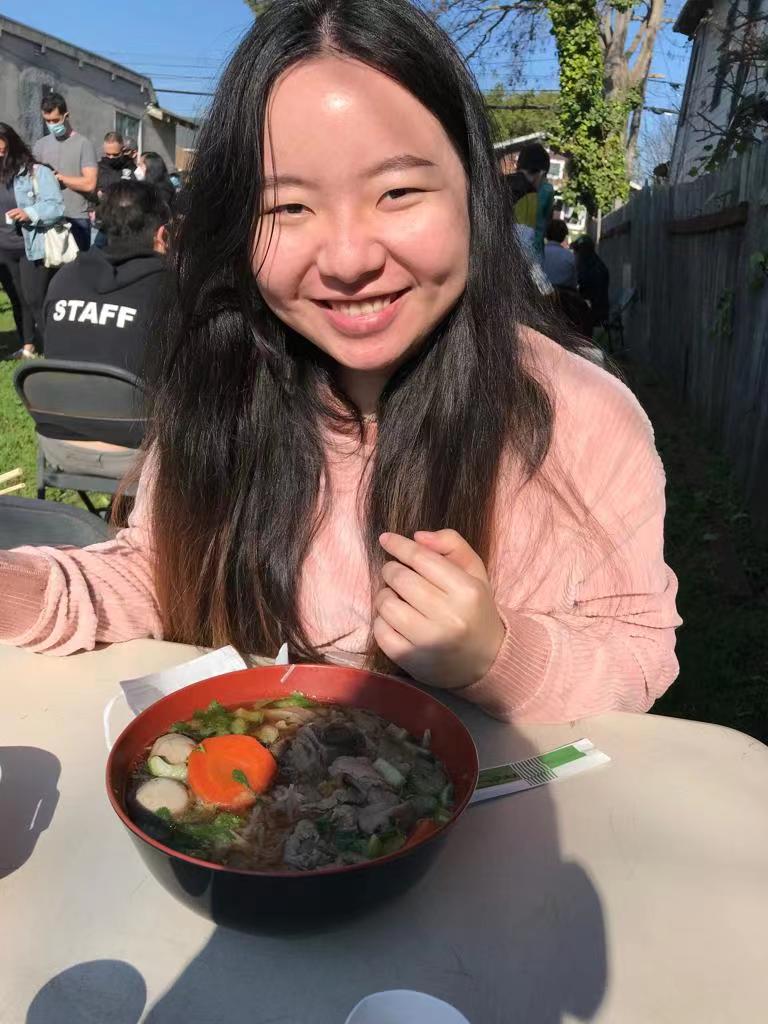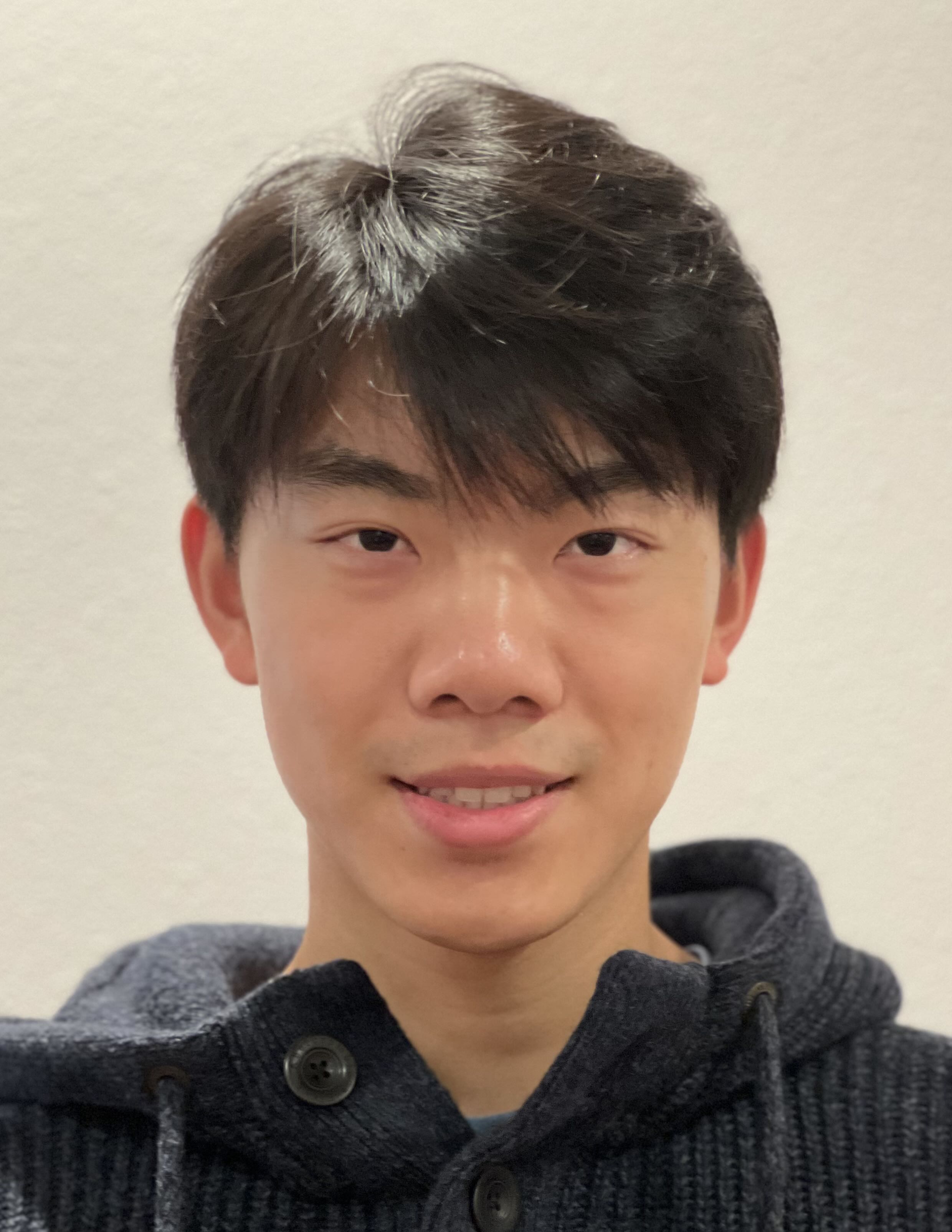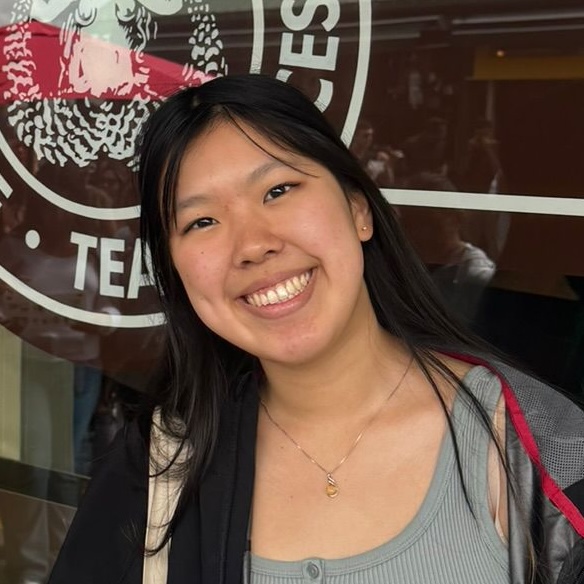Park Sinchaisri
Operations + Analytics Professor at Berkeley Haas | Future of Work + Behaviors + Cities(Wichinpong Sinchaisri | วิชินพงศ์ สินชัยศรี)
I am an Assistant Professor of Operations and Information Technology Management at UC Berkeley Haas School of Business. My official website is here. In Fall 2025, I will be teaching EWMBA 204: Operations .
I study the design and analysis of data-driven and human-centric solutions to problems in operations management, currently focusing on the future of work ("How do workers decide their flexible schedule?"), human-AI interfaces ("Can ML offer simple tips to help humans?"), dynamic pricing ("How to price when it affects quality perception?"), and urban analytics ("Are more social neighborhoods safer?"). My research group, Berkeley Operations and Behavioral Analytics Lab (BOBALAB), is looking for undergraduate/graduate research assistants as well as academic/industry collaborators; please reach out!
I received my PhD in Operations, Information, and Decisions and AM in Statistics from The Wharton School at the University of Pennsylvania, where I was also a Wharton Social Impact Fellow, my SM in Computational Science and Engineering from MIT, and my ScB in Computer Engineering and Applied Mathematics-Economics from Brown University. I had also worked at Oracle, Goldman Sachs, and Deloitte Consulting. Growing up in Bangkok, I am a world traveller, avid foodie, and design/cities enthusiast.
7/31/25
- Our paper Learning on the Go is accepted for the 28th ACM SIGCHI Conference on Computer-Supported Cooperative Work & Social Computing (CSCW) in Bergen, Norway!
5/22/25
- Our paper Improving Human Sequential Decision Making with Reinforcement Learning is now published in Management Science!
5/10/25
- Our paper Managing Multihoming Workers is selected for presentation at the 2025 Platform Strategy Research Symposium in Boston, MA.
11/13/24
- I will be presenting two of my papers on human-AI interfaces for sequential decision-making at the Tuck School of Business, Dartmouth College.
10/21/24
- Our paper Managing Multihoming Workers won the Second Place for the 2024 INFORMS Technology, Innovation Management and Entrepreneurship Section Best Working Paper Competition.
9/20/24
- Our paper Making ChatGPT Work For Me is accepted for the 28th ACM SIGCHI Conference on Computer-Supported Cooperative Work & Social Computing (CSCW) in Bergen, Norway!
5/18/24
- I am honored to win the Earl F. Cheit Award For Excellence In Teaching for my Operations classes at UC Berkeley Haas!
12/31/23
- I will be presenting two of my papers on human-AI interfaces for sequential decision-making at the Stanford Operations, Information & Technology Seminars on March 6, 2024.
10/7/23
- I will be presenting two of my papers on human-AI interfaces for sequential decision-making at the MIT Initiative on the Digital Economy Seminar on November 15, 2023.
8/30/23
- I am honored and thrilled to present my work at the UC Berkeley–NASA Inaugural Symposium on "The Future of Skills in the AI Era" on September 22, 2023 at NASA’s Ames Research Center!
7/20/23
- I am fortunate to receive the 2023 Fisher Center for Business Analytics Research Grant.
Research Interests
- Behavioral and human-centric operations management, empirical operations management, future of work/gig economy, people analytics, behavioral economics, applied machine learning, human-computer interaction, revenue management and pricing, urban analytics, computational social science
Research Methods
- Econometrics, randomized experiments, reinforcement learning, interpretable machine learning, structural estimation
Publications
Community Vibrancy and its Relationship with Safety in Philadelphia
with Shane JensenPLoS ONE (2021)
Press: Wharton Stories
Wharton Social Impact Initiative Fellowship, 2018-2020
To what extent can the strength of a local urban community impact neighborhood safety? We construct measures of community vibrancy based on a unique dataset of block party permit approvals from the City of Philadelphia. Our first measure captures the overall volume of block party events in a neighborhood whereas our second measure captures differences in the type (regular versus spontaneous) of block party activities. We use both regression modeling and propensity score matching to control for the economic, demographic and land use characteristics of the surrounding neighborhood when examining the relationship between crime and our two measures of community vibrancy. We conduct our analysis on aggregate levels of crime and community vibrancy from 2006 to 2015 as well as the trends in community vibrancy and crime over this time period. We find that neighborhoods with a higher number of block parties have a significantly higher crime rate, while those holding a greater proportion of spontaneous block party events have a significantly lower crime rate. We also find that neighborhoods which have an increase in the proportion of spontaneous block parties over time are significantly more likely to have a decreasing trend in total crime incidence over that same time period.
The Impact of Behavioral and Economic Drivers on Gig Economy Workers
with Gad Allon and Maxime CohenManufacturing & Service Operations Management (2023)
Press: Knowledge@Wharton, Haas Newsroom
Best Paper in Operations and Supply Chain Management, Academy of Management, 2019
Accepted to the 2019 MSOM Service Management SIG
2nd Place, People Analytics Conference Research Paper Competition, 2019
3rd Place, INFORMS Behavioral Operations Management Best Working Paper Award, 2019
Finalist, POMS CBOM Junior Scholar Paper Competition, 2020
Winner, Baker Retailing Center Research Grant, 2018
Gig economy companies benefit from labor flexibility by hiring independent workers in response to real-time demand. However, workers' flexibility in their work schedule poses a great challenge in terms of planning and committing to a service capacity. Understanding what motivates gig economy workers is thus of great importance. In collaboration with a ride-hailing platform, we study how on-demand workers make labor decisions; specifically, when to work and for how long. Our model offers a way to reconcile competing theories of labor supply regarding the impact of financial incentives and behavioral motives on labor decisions. We are interested in both improving how to predict the behavior of gig economy workers and understanding how to design better incentives. Using a large comprehensive dataset, we develop an econometric model to analyze workers' labor decisions and responses to incentives while accounting for sample selection and endogeneity. We find that financial incentives have a significant positive influence on the decision to work and on the work duration-confirming the positive income elasticity posited by the standard income effect. We also find support for a behavioral theory as workers exhibit income-targeting behavior (working less when reaching an income goal) and inertia (working more after working for a longer period). We demonstrate via numerical experiments that incentive optimization based on our insights can increase service capacity by 22% without incurring additional cost, or maintain the same capacity at a 30% lower cost. Ignoring behavioral factors could lead to understaffing by 10-17% below the optimal capacity level. Lastly, inertia could be a potential sign of workers' loyalty to the platform.
Improving Human Sequential Decision Making with Reinforcement Learning
with Hamsa Bastani and Osbert BastaniManagement Science (2025)
Winner, INFORMS Data Mining Best Paper Award, 2022
Winner, WISE Best Conference Paper Award, 2022
Winner, INFORMS Behavioral OM Best Working Paper Award, 2021
2nd Place, INFORMS TIMES Best Working Paper Award, 2021
2nd Place, POMS CBOM Junior Scholar Paper Competition, 2021
Accepted to the 2021 MSOM Service Management SIG
Accepted to the Workshop on Operations of People-Centric Systems at EC'21
Workers spend a significant amount of time learning how to make good decisions. Evaluating the efficacy of a given decision, however, can be complicated --- e.g., decision outcomes are often long-term and relate to the original decision in complex ways. Surprisingly, even though learning good decision-making strategies is difficult, they can often be expressed in simple and concise forms. Focusing on sequential decision-making, we design a novel machine learning algorithm that is capable of extracting "best practices" from trace data and conveying its insights to humans in the form of interpretable "tips". Our algorithm selects the tip that best bridges the gap between the actions taken by the human workers and those taken by the optimal policy in a way that accounts for which actions are consequential for achieving higher performance. We evaluate our approach through a series of randomized controlled user studies where participants manage a virtual kitchen. Our experiments show that the tips generated by our algorithm can significantly improve human performance relative to intuitive baselines. In addition, we discuss a number of empirical insights that can help inform the design of algorithms intended for human-AI interfaces. For instance, we find evidence that participants do not simply blindly follow our tips; instead, they combine them with their own experience to discover additional strategies for improving performance.
Making ChatGPT Work for Me
with Samantha Keppler and Clare Snyder
Proceedings of the ACM on Human-Computer Interaction (2025)
Press: The Conversation, The 74 Million
Increasingly, work happens through human collaboration with generative AI (e.g., ChatGPT). In this paper, we conduct a qualitative study of this collaboration for real-life work tasks. We focus our study on US public school teachers (N = 24) who must regularly complete text-generation tasks including creating quizzes, slide decks, word problems, reading passages, lesson plans, classroom activities, and/or projects. In one-on-one video- and audio-recorded virtual sessions, we observe each teacher use ChatGPT-4 for work tasks of their choosing for 15 minutes, and debrief their experience. Analyzing 201 prompts inputted by the 24 teachers, we uncover four main modes in which the teachers request support from ChatGPT: (1) make for me (55% of prompts), (2) find for me (15%), (3) jump-start for me (10.5%), and (4) iterate with me (15.5%). When we analyze the data at the conversation level, where a conversation is one or more prompts about the same topic, we find 66 out of the 80 teacher-ChatGPT conversations in our data employ only one support mode. In only 14 conversations did teachers combine different modes of support. A follow-up survey of the same 24 teachers reinforces our evidence of the prompt- and conversation-level variety in ChatGPT use "in the wild." Our findings contribute to an emerging theory of generative AI use in practice.
Learning on the Go: Understanding How Gig Economy Workers Learn with Recommendation Algorithms
with Shunan Jiang
Proceedings of the ACM on Human-Computer Interaction (2025)
As gig economy platforms increasingly rely on algorithms to manage workers, understanding how algorithmic recommendations influence worker behavior is critical for optimizing platform design and improving worker welfare. In this paper, we investigate the dynamic interactions between gig workers and platform algorithms, with a particular focus on how workers learn to improve their strategy and performance over time. Using multiple quantitative methods, including two-way fixed-effects regression and multinomial logit modeling, we analyze over one million orders completed by gig workers on a retail delivery platform. Our findings reveal a clear learning curve: workers progressively improving their efficiency and on-time delivery performance with increased experience. We also find that while newcomers heavily rely on algorithmic recommendations for task selection, more experienced workers tend to deviate from these recommendations, developing and employing personalized strategies. This shift suggests that experienced workers may perceive algorithmic recommendations as less beneficial or misaligned with their evolved preferences, highlighting the necessity for adaptive recommendation systems. Our research underscores the importance of designing human-centric recommendation algorithms that accommodate workers' learning trajectories, incorporate their feedback, and offer flexibility to support personalized strategies, ultimately enhancing collaborative dynamics and outcomes for both workers and platforms.
Working Papers
Markdown Pricing with Quality Perception
with Rim Hariss, Georgia Perakis, and Y. Karen ZhengMajor Revision (2nd Round) at Manufacturing & Service Operations Management
Honorable Mention, MIT ORC Best Student Paper Award, 2017
Consumers often perceive higher-priced products to have higher quality. Less is known on how quality perception is affected by price markdowns. In addition, it is an open question whether and how consumers' ex-ante expectation on a future markdown affects their quality perception as well as purchase decisions. We answer these questions in a markdown setting under a fixed inventory. This paper adds to the growing literature that incorporates consumers' behavioral regularities in revenue management by studying the new dimension of quality perception and generates new insights absent in the current literature. Our results offer insights on how retailers should adapt their markdown strategy in the presence of price-based quality perception. We develop a consumer model that incorporates quality perception and emotional loss when the expected markdown is too optimistic as compared to the actual markdown. We embed this model into the retailer's markdown optimization and examine the impact of consumers' behavioral factors on the retailer's optimal strategy. Finally, we design and conduct a consumer study to calibrate our model and validate the functional relationships among key factors. Consumers' quality perception increases with the products full price while it decreases with the (expected) markdown. We show that the retailer's optimal markdown is nonmonotone in these quality perception parameters. The nonmonotonicity is driven by the nontrivial tradeoff of trying to maintain a higher perceived quality by the consumers while controlling potential loss emotion that could arise if consumers observe a smaller-than-expected markdown, particularly when total market demand is not very large. Furthermore, we find that it is beneficial for the retailer to pre-announce and commit to a markdown strategy to prevent a mismatch between consumers' expectation and the actual markdown. This approach benefits the retailer by eliminating the negative effect on sales of the consumers' loss emotion due to an optimistic expectation. Ignoring these behavioral factors can substantially hurt the retailer's payoff. When inventory is tight, it is critical to correctly capture consumers quality perception (38% average loss in payoff if ignored). When instead inventory is sufficient, the retailer should be mindful of the potential emotional loss that its markdown could create among its consumers.
Managing Multihoming Workers in the Gig Economy
with Gad Allon, Maxime Cohen, and Ken Moon
Under revision for resubmission
2nd Place, INFORMS TIMES Best Working Paper Award, 2024
Accepted to the 2023 MSOM Service Management SIG
Spotlight Presentation at the 2022 INFORMS RMP Conference
Mack Institute Research Fellowship, 2020
Fishman Davidson Center Research Grant, 2019
Russell Ackoff Fellowship, 2019
Gig economy platforms compete to source labor from common pools of workers, who multihome by dynamically allocating their services in real-time across multiple platforms. The question of how such workers choose between competing platforms has grown in salience. However, the unavailability of comprehensive data has limited our understanding of workers' dynamic multihoming decisions and their impact on the labor supply and operations of platforms. We address this gap by integrating a major ride-hailing platform's proprietary data regarding individual drivers' detailed trips with public data on the drivers' outside options. Using empirical methods that overcome the remaining data limitations using simulation and machine learning, we structurally estimate the perceived costs that motivate drivers' forward-looking decisions and behavior. Our analysis reveals that workers are short-sighted and value sequences of consistent rewards (e.g., jobs and pay) over highly variable ones. Based on these findings, we explore the impact of compensation and incentives on the platform's labor supply and operations. Our counterfactual analyses find that consistent pay dominates variable pay in retaining multihoming workers. For gig platforms seeking to maintain a stable platform workforce, they can further control their labor supply by rewarding uninterrupted work or delaying quits. For policymakers, our research gives insights regarding the design and effects on multihoming behavior of gig economy incentive schemes and regulations, including specifically New York City's 2018 Driver Income Rules
Backwards Planning with Generative AI: Case Study Evidence from US K12 Teachers
with Samantha Keppler and Clare Snyder
abstract SSRN [Jan 2025]Backward planning is an effective and efficient operational process when working towards a goal: work backward from the desired outcome to figure out the steps needed to accomplish them in the time allowed. While many organizations and workers might use it, backward planning is a universal practice among US K12 teachers. The emergence of generative AI has stimulated many conversations about its impact on teacher work, but it is still unclear if and how generative AI fits within the backward planning approach adopted by most every teacher. Given backward planning is standard workflow process in K12 education, we ask: How are teachers using generative AI to support their teaching work? Our methodology is a case study of 24 US public school teachers, sampled to vary by subject area and grade level, during the 2023-2024 school year. We conduct interviews, observations, and surveys at different points in time to understand their evolving generative AI use. In fall 2023, all teachers were novice users or had never tried generative AI. By spring 2024, the teachers separate into three distinct groups: (1) those who seek generative AI input (i.e., thoughts or ideas about learning plans) and output (i.e., quizzes, worksheets), (2) those who only seek generative AI outputs, and (3) those not using generative AI. The teachers in the first group-but not the second group-report productivity gains in terms of workload and work quality. Our findings have implications for understanding how to integrate generative AI into backward, goal-oriented workflows.
Learning to Gig: Two-Phase Bandits with Arm Agency and Learning
with Shunan Jiang and Xinpeng Qu
abstractWe study a novel sequential decision-making problem inspired by gig economy platforms, where workers autonomously choose whether to accept tasks and improve with experience. Unlike traditional recommendation or bandit settings, platforms in this context cannot directly assign jobs; they must recommend a subset of workers and rely on their voluntary response. We model this as a two-phase bandit problem in which arms (workers) exhibit agency, stochastic task acceptance, and endogenous learning, where performance improves with experience. These features introduce a new exploration-exploitation trade-off: choosing experienced workers for short-term reward versus investing in newer workers to enhance future performance. We show that computing the optimal policy is intractable due to the high-dimensional state space. We propose a greedy benchmark that captures immediate expected utility, and design a learning algorithm, C-UCB, that achieves sublinear O(log T) regret with respect to this benchmark. Our framework highlights key algorithmic challenges in human-in-the-loop assignment systems and offers foundations for recommendation systems that support both autonomy and skill development.
Understanding Non-Adoption of "Optimal" Algorithmic Advice for Problem Solving
with David Lee
Accepted to CHI'22 Workshop on Trust and Reliance in AI-Human TeamsPrior research on human-AI systems has focused on simple adopt/reject decisions on AI-generated tips, leaving sequential decision-making contexts less explored. In sequential tasks, tips suggest best practices that humans must operationalize across multiple decisions towards a problem-solving objective. In this paper, we explore human non-adoption of such tips in a virtual kitchen management task where disruptions necessitate a change of strategy. A qualitative analysis reveals diverse views of tips: as rules, directional principles, experimental options, or initially ignorable advice. Tips can still benefit those who reject them through creating focal points influencing worker sense-making. The challenge of operationalizing tips can lead to diverse barriers not just related to trust, but also to tip usability and environmental factors. A follow-up quantitative study confirmed three prominent barriers impacting participant intent to use tips. It also found that problem solving style, specifically an "Orientation to Change", may influence one's experience of barriers and tip adoption.
Precise or Broad? Designing Algorithmic Advice for Learning in Sequential Decision Making
with Philippe Blaettchen Berkeley AI Research Commons Grant, 2021
Center for Growth Markets Research Grant, 2022
As AI decision-support tools increasingly shape operational decisions, concerns arise about how they affect human learning and adaptability. We study how the precision of algorithmic advice influences both short-run performance and the development of transferable skills in sequential decision-making tasks. We first develop a stylized planner–worker model in which a planner chooses between precise, action-level advice and broad, strategic advice before the worker completes a task with AI assistance and then faces a related task without assistance. The model characterizes a fundamental trade-off between reward and learning: precise advice is easier to follow and yields higher performance on the advised task, while broad advice induces more effortful processing and generates knowledge that is more transferable to new environments. Extending the model to a Markov decision process, we show that the learning advantage of broad advice grows with the length of the task horizon, because precise advice steers behavior toward low-information regions of the state space whereas broad advice preserves exploratory learning. We then test these predictions in two pre-registered laboratory experiments where participants complete an electric-vehicle charging task with and without AI-generated tips. Consistent with the model, precise advice improves compliance and reduces travel time while advice is active, whereas broad advice leads to better retention of batching strategies and superior performance once advice is removed, particularly when the environment changes. Our results provide design guidelines for AI recommendation systems that balance operational efficiency with the development of long-term human capability.
Work in Progress
Managing Competitive Multi-agent Environments with Recommendation Algorithms
with Bryce McLaughlinDesigning and Sequencing Incentives for Platform Workers
Berkeley Operations & Behavioral Analytics (BOBALAB)
We are currently looking for undergraduate/graduate research assistants as well as academic/industry collaborators for several projects on human-AI interfaces for operations managemen and the future of work through Berkeley's URAP program or bobalab [at] berkeley.edu
Current Students (2025)
Selected Alumni
Berkeley: Brandon Chin '25, Shunan Jiang PhD'25 (Google Research), Edward Lee '25, Yutong Wu '25 (Computer & Information Science MS at Penn), Thomas Yeoh '25 (Computer Science MS at UC Irvine), Austin Zhu '25 (Economics PhD at Michigan), Kristin Chen '24 (Master in Finance at UChicago), Serena Gu '24 (Computer & Information Science MS at Penn), Matthew Lee '24 (Computer Science MS at Stanford), Ron Wang (Computer Science MS at Stanford), Jerry Zhu (Machine Learning & Data Science MS at Northwestern), Jacky Kwok '23 (Computer Science PhD at Stanford), Laura Li '23 (Master in Business Analytics at MIT), Nicole Liu '23 (Master in Public Health at Berkeley), Mingyuan (Jeremy) Ma '23 (Data Science MS at Harvard), Nick Melamed '23 (Data Science MS at Berkeley), Ethan Wang '23 (Data Science MS at Berkeley), Kareena Wu '23 (McKinsey), Stephen Yang '23 (Computational Science & Engineering MS at Harvard)
Others Na Hyun Kim '24(Operations, Information & Decisions PhD at Wharton), Lorry Wu '23 (Technology & Operations Management PhD at Harvard), Stephen Lin '22 (Behavioral & Decision Sciences MS at Penn), Canary Zhu ’21 (Information Systems & Management PhD at CMU)
Other Works
Student Mentorship and Student Mental Health/Suicide Prevention
Since Fall 2024, I have been serving as a Resident Faculty at UC Berkeley. My signature event series is called How It's Possible with Park, where I take students to see behind-the-scene operations at various organizations, from a chocolate factory to a tofu factory to a musical production.
Prior to Berkeley, I have served as a Graduate Associate at Penn's Stouffer College House since 2017, where I provide academic, social, and mental support to resident undergraduate students. My in-house programs emphasize fostering a strong, supportive, and inclusive community and enhancing student wellness. I received the Excellence in Student and Community Engagement Award in 2019 for this role. I have also collaborated with the Children's Hospital of Philadelphia on their work to prevent suicide among pediatric patients. We interviewed patients, families, and healthcare providers to identify care process improvements that may reduce suicides (joint work with Cadence Bowden and Stephanie Doupnik, MD).
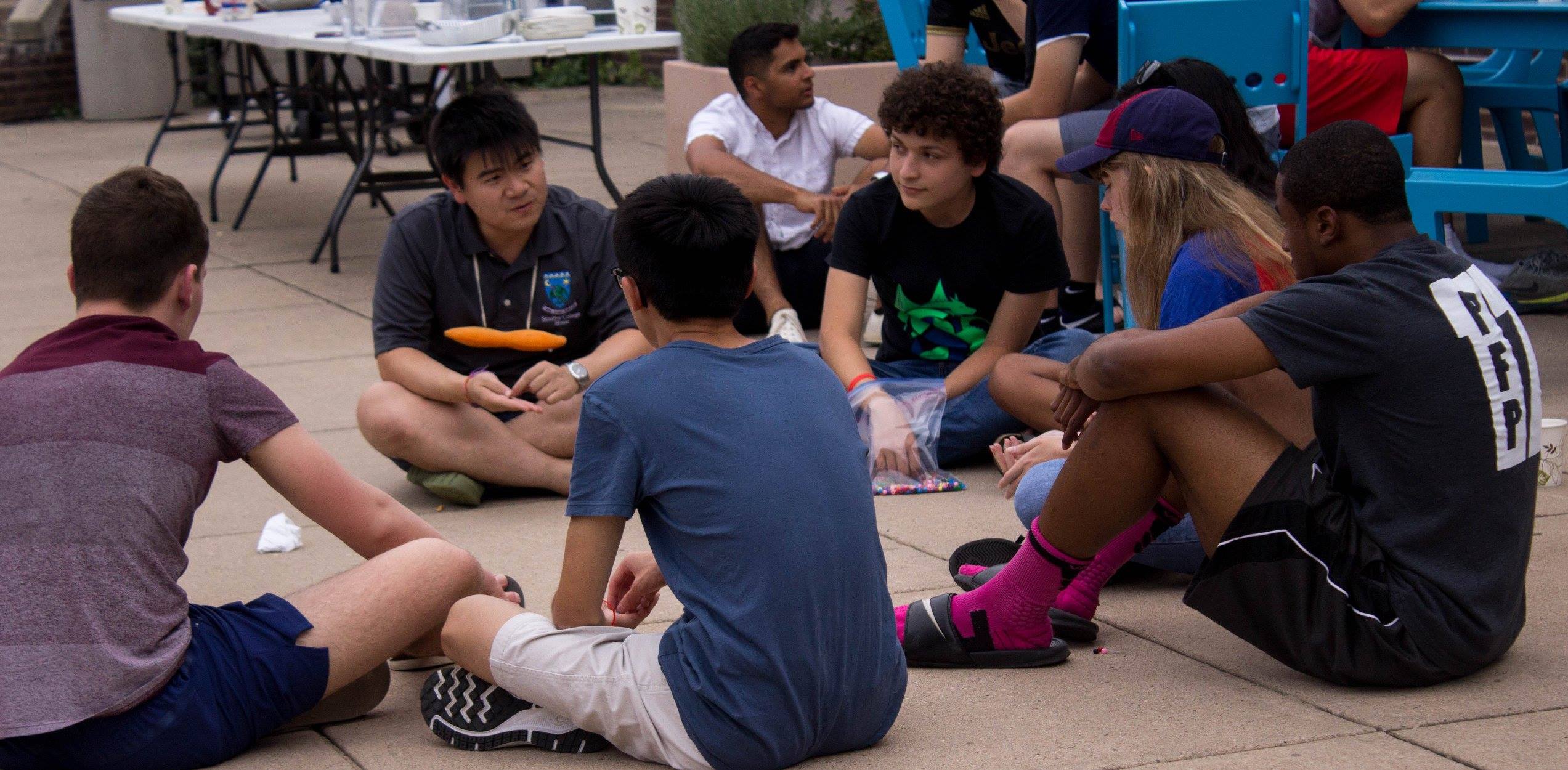
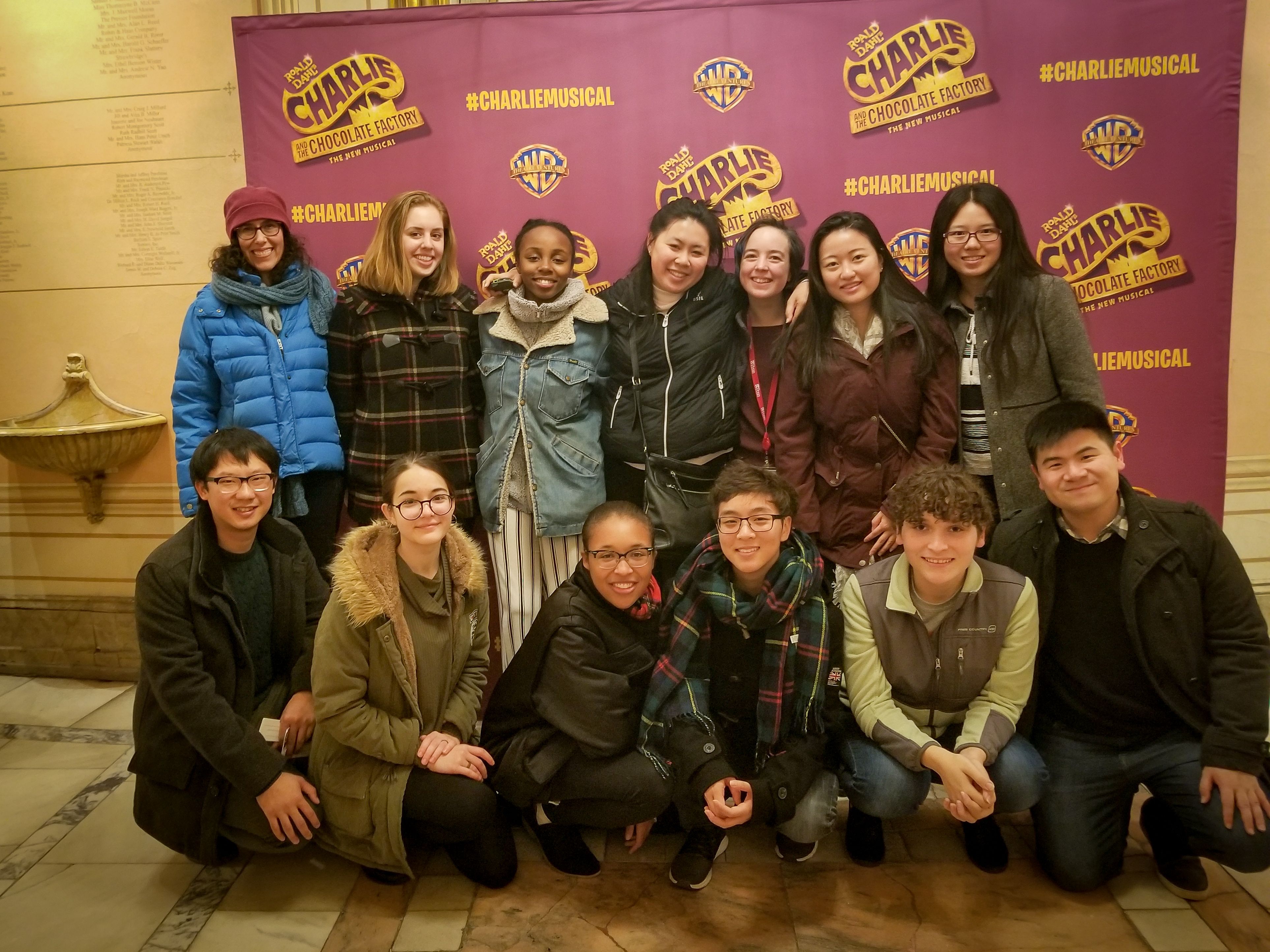
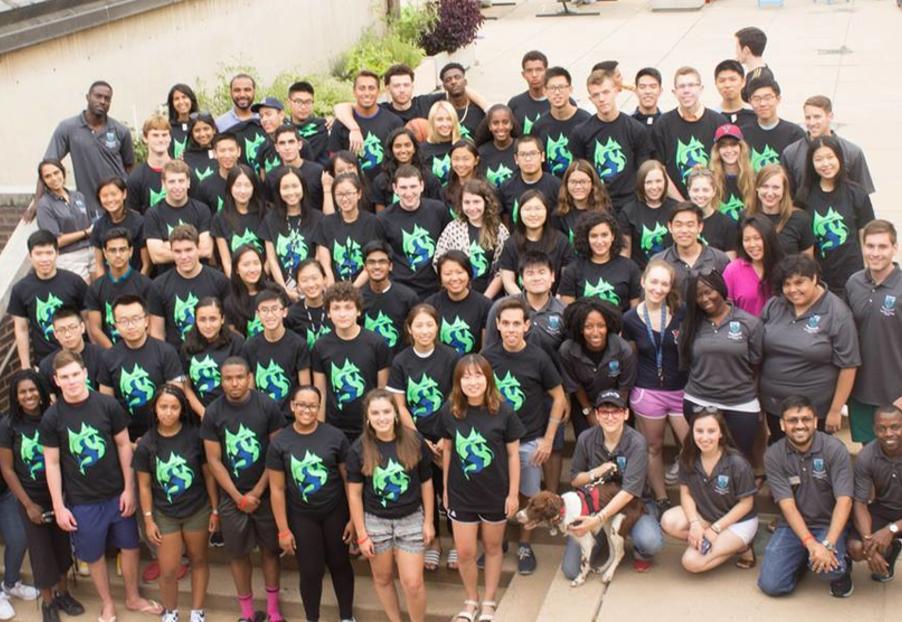
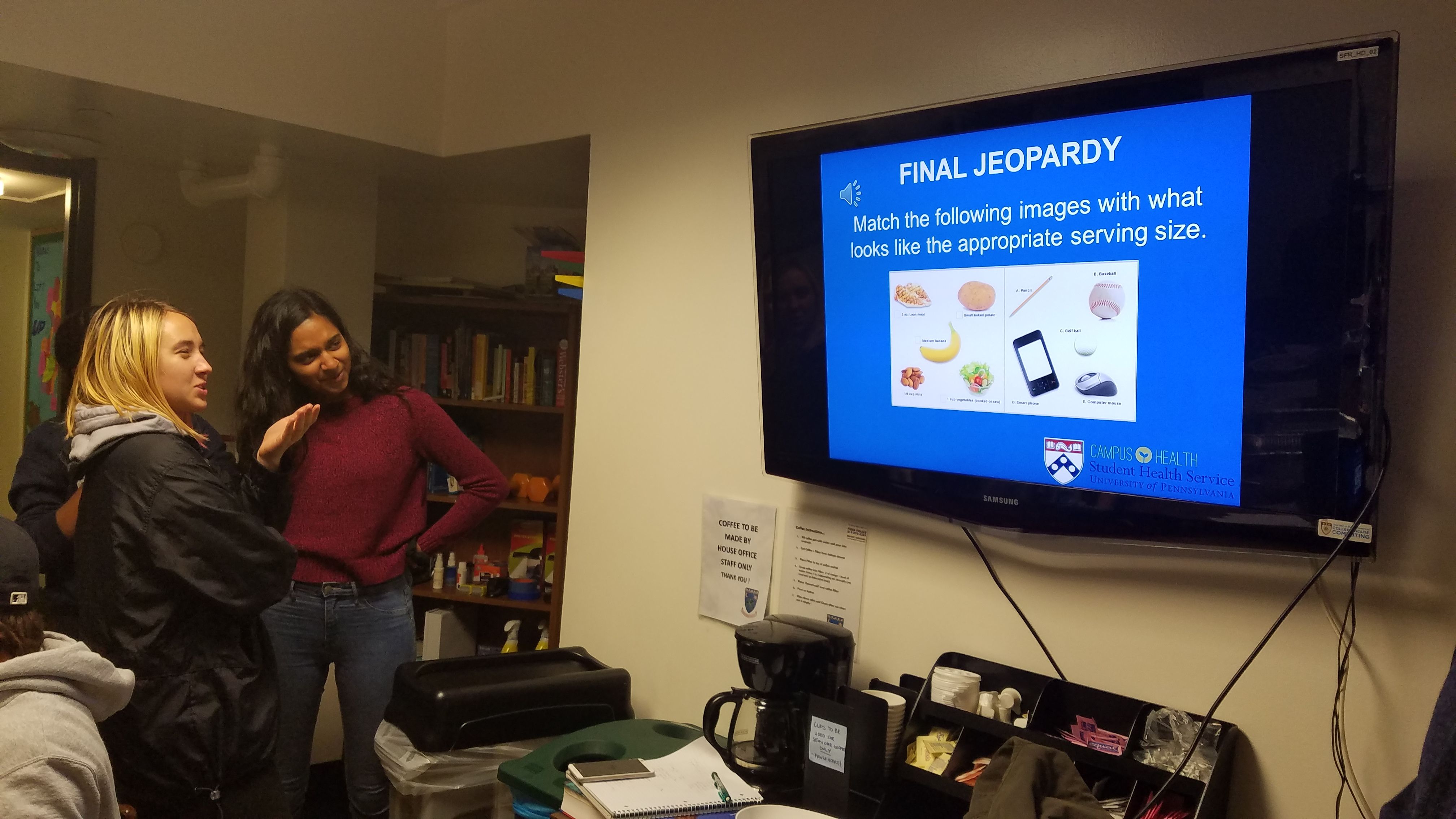

Social Impact in Practice/Urban Planning
As a city planning enthusiast, I always seek opportunities to make a positive social impact to the local community. Beyond my urban analytics research with the Wharton Social Impact Initiative, I have been working with PennPraxis to meaningfully engage with community partners and practitioners in Philadelphia and implement community development projects. In Fall 2018, we transformed a vacant lot on the border between a residential area and a homeless encampment in Kensington ("Walmart of Heroin") into a beautiful green space ("Tusculum Square"). The lot, once filled with litter and home to illegal dumping, now stands as a welcoming space for residents and visitors. I co-wrote an article about this transformation for a city planning magazine (joint work with Alex Baum and Mariela Hernandez).
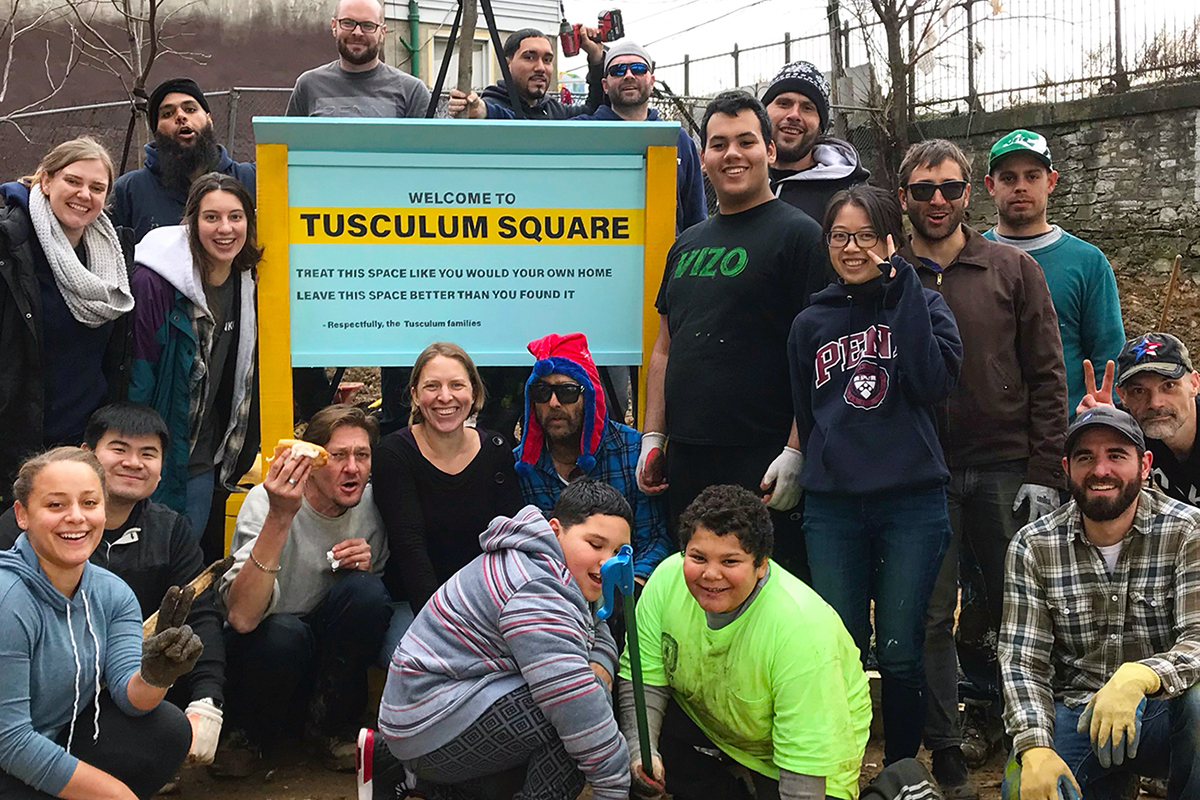



People Analytics
I enjoy analyzing data on human behavior to uncover new insights (and inspire my research). One area of interest is to identify biases and discriminatory behaviors from data. In 2018, I looked into the review process for the Global Health Corps (GHC) fellowship and identified biases and disagreements among reviewers (joint work with Titipat Achakulvisut). Our work won the Second Prize at the People Analytics Conference Case Competition.
Berkeley Haas
-
EWMBA 204 Operations (Instructor)
Fall 2022-Present (Evening/Weekend MBA Core)
Recipient of The 2024 Earl F. Cheit Award For Excellence In Teaching
Overall rating: 6.8/7 (Fall 2022), 6.9/7 (Fall 2023), 6.7/7 (Fall 2024)Operations is the design and management of the processes that transform inputs into finished goods or services. Operations is one of the primary functions of a firm. While marketing induces the demand for products and finance provides the capital, operations produces and delivers the product (goods and services). It is responsible for matching supply with demand. This course provides an introduction to the concepts and analytic methods that are useful in understanding the management of a firm's operations. We will cover topics in Operations that are relevant both for products and services. Our aim is to (1) familiarize you with the problems and issues confronting operations managers, and (2) provide you with language, concepts, insights, and tools to deal with these issues in order to gain competitive advantage through operations. We will cover a wide range of topics: process analysis, queueing theory, inventory and supply chain management, quality control, operations strategy, and emerging topics including sustainability, experimentation, and the future of work. Examples will be drawn from a diverse set of services and products, from food to fashion, from hotels to healthcare, from e-commerce to ride-sharing.
Syllabus: Fall 2024UGBA 141 Production and Operations Management (Instructor)
Spring 2022, Fall 2022, 2024 (Undergrad Elective for Business Administration/Data Science)
Overall rating: 6.8/7 (Spring 2022), 7/7 (Fall 2022), 6.4 (Fall 2024)A survey of the concepts and methodologies for operations management: the design, planning, management, and improvement of service and production processes. Topics include process analysis, queueing, supply chain management, inventory control, quality management, and emerging topics such as sustainability, people operations, and the future of work. Examples will be drawn from a diverse set of services and products, from food to fashion, from hotels to healthcare, from e-commerce to ride-hailing.
Syllabus: Fall 2024 Wharton
-
OIDD 001 Prescriptive Analytics (Instructor)
Summer 2021 (Pre-Baccalaureate)In this course, we will explore the subject of quantitative business decision making. Specifically, we will study optimization and simulation tools and provide you with a set of key skills in the area of prescriptive analytics. We will illustrate the use of these tools in a variety of business applications, including manufacturing, logistics, inventory management, capital budgeting, insurance, and revenue management.
OIDD 299 Judgment & Decision Making Research Immersion (Instructor/Mentor)
Spring 2019, Fall 2019, Spring 2020, Fall 2020, Spring 2021 (Undergrad)This class provides a high-level introduction to the field of judgment and decision making (JDM) and in-depth exposure to the process of doing research in this area. Throughout the semester you will gain hands-on experience with several different JDM research projects. You will be paired with a PhD student or faculty mentor who is working on a variety of different research studies. To complement your hands-on research experience, throughout the semester you will be assigned readings from the book Nudge by Thaler and Sunstein, which summarizes key recent ideas in the JDM literature. You will also meet as a group for an hour once every three weeks to discuss the projects you are working on, to discuss the class readings, and to discuss your own research ideas stimulated by getting involved in various projects.
OIDD 236 Scaling Operations in Technology Ventures (TA)
Spring 2021 (Undergrad)This course helps students learn to make strategic scaling decisions that are grounded in operational reality. Students will study how to build and evaluate the "operation systems" of the firm to maximize value with the focus on scaling the firm's operations. This involves tailoring the firm's operational competencies, assets, and processes to a specific business strategy. The course will approach the challenge of scaling operations and operations strategy by taking a holistic view that incorporates competitive strategy, financial evaluation, and the customer experience.
OIDD 636 Scaling Ventures: Aligning Operations with Strategy (TA)
Spring 2021 (MBA)The course is designed for students who plan to join rapidly growing ventures, who are preparing to scale their own ventures, or who plan to evaluate such ventures through the lens of investors or consultants. The goal of this course is to make strategic scaling decisions that are grounded in operational reality. The course adopts the perspective of the CEO and functional leaders in growing ventures and organizations and explores issues that leaders and managers encounter after a firm achieves product-market fit. We will approach the challenge of scaling by taking a holistic view that incorporates competitive strategy, financial evaluation, and the customer experience. We focus on decisions and challenges that many firms that try to scale their operations face with the focus on assessing the readiness of the firm to scale, and the required steps to scale. In particular, we will discuss whether the firm needs to reformulate its strategy; whether the firm should build competencies inhouse (for example, by investing in a portfolio of assets) or buy them (for example by developing and implementing a network strategy working with external suppliers) and the risks associated with scaling these. We will also discuss the organizational implications of scaling, focusing on designing the organizational structure and culture for growth, all while managing the challenges within and across the product, engineering, sales, marketing and sales functions.
OIDD 611 Quality & Productivity (TA)
Fall 2019 (EMBA), Spring 2020 (MBA), Fall 2020 (MBA), Spring 2021 (EMBA)Matching supply with demand is an enormous challenge for firms: excess supply is too costly, inadequate supply irritates customers. In the course, we will explore how firms can better organize their operations so that they more effectively align their supply with the demand for their products and services. Throughout the course, we illustrate mathematical analysis applied to real operational challenges--we seek rigor and relevance. Our aim is to provide both tactical knowledge and high-level insights needed by general managers and management consultants. We will demonstrate that companies can use (and have used) the principles from this course to significantly enhance their competitiveness.
MGMT 610 Foundations of Teamwork and Leadership (Facilitator)
Fall 2018, Fall 2019, Fall 2020 (MBA)MGMT 610 is the first core course in the MBA Program and it cannot be waived. The first week of the fall term (in August) is dedicated to this formative and foundational experience. This course focuses on developing students' knowledge and skill set for teamwork and leadership. It is meant to be an intense immersion experience that draws strongly on the pedagogy of the Wharton Teamwork and Leadership Simulation, a team-based, highly interactive simulation that was custom-designed specifically to allow students to experience the core concepts they learn in this class. The three goals of this course are for students to learn: 1. Leadership behaviors: how to enact the skills that contribute to a team's effective performance. 2. Team dynamics: how to be an effective team member, as well as how to best design work teams; 3. Organizational awareness: understanding organizational culture. Format: A custom-designed Wharton-only simulation is paired with course sessions to deliver a unique learning experience. Classes will include experiental learning combined with debriefings, lectures, readings, class discussion and personal and group performance feedback. This course reflects the realities that informal leadership occurs in teams on an ongoing basis, that being a good team player is a part of leadership, and that many of one's early experiences with leadership will occur while working on teams.
OIDD 615 Operations Strategy (TA)
Spring 2019 (EMBA)Operations strategy is about organizing people and resources to gain a competitive advantage in the delivery of products (both goods and services) to customers. This course approaches this challenge primarily from two perspectives: 1) how should a firm design their products so that they can be profitably offered; 2) how can a firm best organize and acquire resources to deliver its portfolio of products to customers. To be able to make intelligent decisions regarding these high-level choices, this course also provides a foundation of analytical methods. These methods give students a conceptual framework for understanding the linkage between how a firm manages its supply and how well that supply matches the firm's resulting demand. Specific course topics include designing service systems, managing inventory and product variety, capacity planning, approaches to sourcing and supplier management, constructing global supply chains, managing sustainability initiatives, and revenue management. This course emphasizes both quantitative tools and qualitative frameworks. Neither is more important than the other.
OIDD 101 Intro to Operations, Information & Decisions (TA)
Fall 2018 (Undergrad)OIDD 101 explores a variety of common quantitative modeling problems that arise frequently in business settings, and discusses how they can be formally modeled and solved with a combination of business insight and computer-based tools. The key topics covered include capacity management, service operations, inventory control, structured decision making, constrained optimization and simulation. This course teaches how to model complex business situations and how to master tools to improve business performance. The goal is to provide a set of foundational skills useful for future coursework atWharton as well as providing an overview of problems and techniques that characterize disciplines that comprise Operations and Information Management.
MIT
-
1.200 Transportation Systems Analysis: Performance & Optimization (TA)
Fall 2014, Fall 2015 (SM-PhD)
Overall rating: 6.3/7 (2014), 6.4/7 (2015)Problem-motivated introduction to methods, models and tools for the analysis and design of transportation networks including their planning, operations and control. Topics include: capacity of critical elements of transportation networks; traffic flows and deterministic and probabilistic delay models; formulation of optimization models for planning and scheduling of freight, transit and airline systems, and their solution using software packages; user- and system-optimal traffic assignment; control of traffic flows on highways, urban grids, and airspace; stochastic simulation modeling of traffic flows.
Recitation notes:
capacity/flow | LP: 1, 2 | IP | queueing: 1, 2, 3 | networks: 1, 2, 3 | simulation | review15.730 Data, Models & Decisions (TA)
Spring 2015 (EMBA)
Overall rating: 4.35/5Introduces students to the basic tools in using data to make informed management decisions. Covers basic topics in data analytics, including introductory probability, decision analysis, basic statistics, regression, simulation, linear and discrete optimization, and introductory machine learning. Spreadsheet exercises, cases, and examples drawn from marketing, finance, operations management, and other management functions. Restricted to first-year Sloan master's students.
Recitation notes:
decision analysis/binomial | LP/Solver | nonlinear optimization | review Brown
-
CSCI 40 Intro to Scientific Computing & Problem Solving (TA/Project Mentor)
Spring 2012This course provides an introduction to using computers to solve STEM (Science, Technology, Engineering, and Mathematics) data analysis, visualization, simulation, and numerical analysis problems. The course begins with an introduction to the basics of programming, accompanied by several applications of fundamental coding elements and concepts. As we do this we will explore some of the breadth of Computer Science as a discipline. This first part of the course will be taught in Python. Following this, we will explore more specialized topics related to scientific computing and mathematics that will allow students to access and analyze a number of "real world" problems. The later portion of the course will be taught in MATLAB.
ENGN 900 Managerial Decision Making (TA/Discussion Leader)
Spring 2012Ways of making effective decisions in managerial situations, especially situations with a significant technological component; decision analysis; time value of money; competitive situations; forecasting; planning and scheduling; manufacturing strategy; corporate culture. Lectures and discussions.

